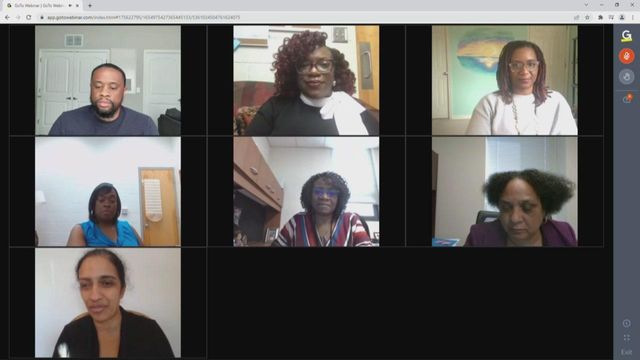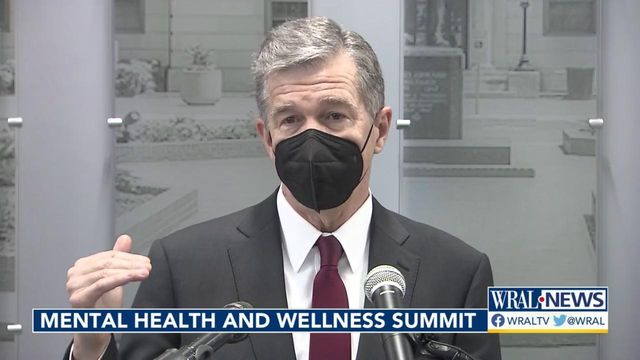Gov. Cooper condemns violence, threats against HBCUs; plans to meet with administrators
North Carolina Central University received national attention from a top education leader and a state official on Wednesday.
Posted — UpdatedU.S. Secretary of Education Miguel Cardona joined Gov. Cooper at NCCU to discuss the importance of mental health and wellness services for students. Both spoke with about 10 students to learn more about what mental impacts Black students are facing and how ARP and other funding has helped supported access to more services.
Cooper spoke to the problems that some Historically Black Colleges and Universities have dealt with this year, including bomb threats and on-campus shootings. He said he plans to meet with students to talk about the hardships they've faced in light of problems on and off-campus that have led to increases in anxiety and depression.
"Gun violence. Hate crimes. It has got to stop," Cooper said. "We are concerned about the bomb threats. In fact next week, I have a call scheduled with all of our HBCUs chancellor’s to talk about steps that we can take to protect the public. We’ve got legislation proposed in our state legislature and Congress that will help take guns out of the hands of criminals, those who should not have them in order to help us reduce gun violence. Then we have to put a renewed emphasis on mental health."
The state health department teamed up with several HBCUs across North Carolina for the day-long summit, which will look at the issues HBCUs have faced during the pandemic and what the administration is doing to address mental health needs.
Charnequa Kennedy, director at NCCU's counseling center, said this is all about getting students to talk about the issues.
"I think we definitely have some representation among our student voices that is helpful to hear and consider, as well as the broader African American and Black community, which a majority of our students are a part of," Kennedy said. "And so it's hearing from them as well as the broader community that's helpful."
"This is a model of what we want to see across the country where we put actions and systems in place to support the emotional wellness of our students," Cardona said. "To support access to mental health."
Related Topics
• Credits
Copyright 2024 by Capitol Broadcasting Company. All rights reserved. This material may not be published, broadcast, rewritten or redistributed.






